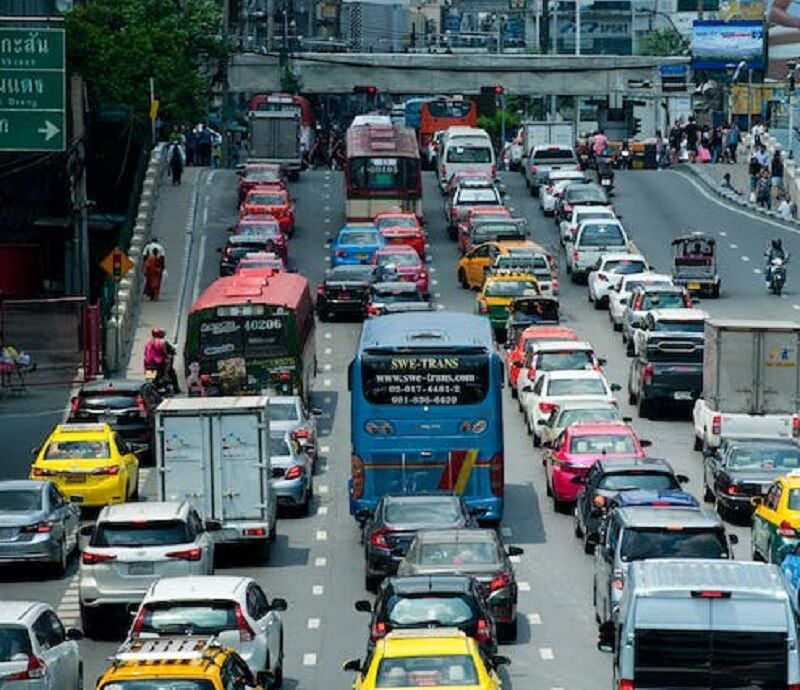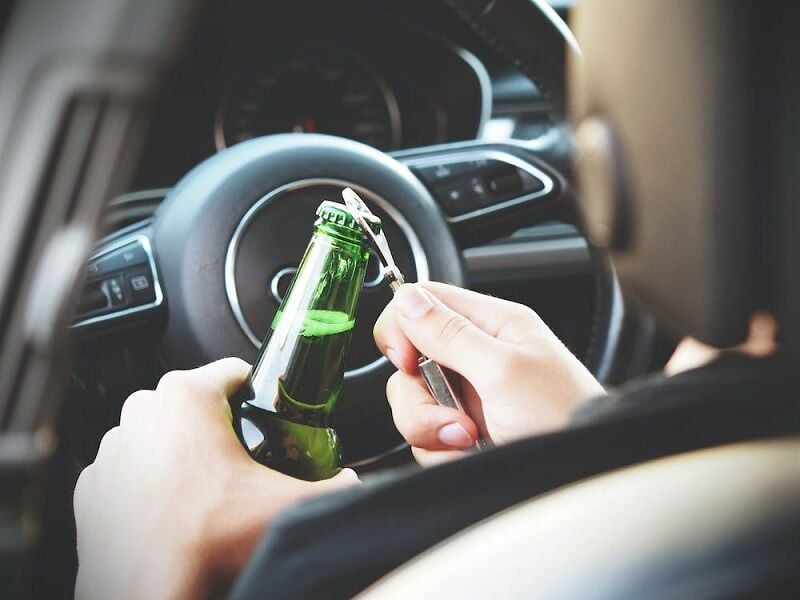Thailand’s laws and prevention against drink-driving

When exploring the landscape of alcohol consumption and driving regulations in Thailand, you’re delving into a subject that deeply affects road safety and public health. Thailand’s approach to curbing drunk driving involves a multifaceted strategy, including legal frameworks, preventative measures, and the employment of sobriety checkpoints. These checkpoints serve as a crucial component in the country’s battle against the perilous mix of alcohol and driving.
Effectiveness and challenges of sobriety checkpoints

Sobriety checkpoints in Thailand, marked by their strategic placement and unpredictability, aim to deter drunk driving. These checkpoints involve the systematic stopping of vehicles to assess drivers’ sobriety levels. However, their efficacy is shadowed by challenges such as inconsistency in enforcement and the need for more advanced alcohol testing technologies. Moreover, the effectiveness of these checkpoints can fluctuate due to various factors, from the time of day to the specific location.
Strategic placement enhances the visibility and deterrent effect of checkpoints.
Inconsistency in enforcement challenges the uniform application of DUI laws.
Advanced alcohol testing technologies are essential for accurate assessments.
Five recommended alcohol policies in Thailand
In your quest to understand Thailand’s approach to combating drunk driving, it’s crucial you’re aware of the key strategies underpinning the nation’s legal framework. Over the years, Thailand has honed in on a quintet of policy recommendations aimed at curbing the consumption of alcohol and its resultant road safety issues.
Firstly, the age restriction for purchasing alcohol stands firm at 20 years and above. This measure ensures that younger, potentially more impressionable individuals are shielded from early alcohol exposure. The enforcement of this rule is stringent, with businesses facing severe penalties for non-compliance.
Reducing the prevalence of alcohol outlets forms the second pillar of Thailand’s strategy. By limiting the number and density of these establishments, the government aims to make access to alcohol less convenient, thereby reducing consumption rates.
The third policy tackles advertising head-on. Thailand has imposed a comprehensive ban on alcohol advertisements, especially in digital media, to curtail the influence of marketing on consumption habits. This move targets the visibility of alcohol brands and their impact on the general populace.
Local community involvement stands as the fourth cornerstone. The government actively encourages communities to promote legal adherence and to innovate by holding alcohol-free events and festivals. This grassroots approach fosters a culture of responsibility and awareness around alcohol consumption.
Lastly, the emphasis on strict legal enforcement cannot be overstated. Whether it’s the Alcoholic Beverage Control Act, the Excise Act, or the Road Traffic Act, Thailand ensures that all regulations are applied with consistency and diligence across the board. The collective administration by different ministries underscores the comprehensive nature of this enforcement, aiming for a substantial reduction in both alcohol consumption and the resulting non-communicable diseases (NCDs).
Armed with these strategies, Thailand is making significant strides in mitigating the hazards associated with drunk driving. Each policy component interlocks to form a robust defense against the adverse effects of alcohol on road safety and public health.
Does anyone face jail time for drunk driving?
When caught driving under the influence (DUI) in Thailand, the question of incarceration becomes pertinent. Recent legal amendments have toughened penalties for DUI offenses, particularly where such actions result in grievous bodily harm or fatality. The imposition of immediate custody, pending judicial bail decisions, indicates a shift towards stricter enforcement. Jail time has become a more probable consequence, especially with the revised sentencing guidelines prescribing up to five years for grievous outcomes. It’s clear that Thailand’s legal stance on drunk driving is oriented towards stringent punitive measures to deter such reckless behavior.
What are the penalties for driving under the influence?
The penalties for DUI in Thailand are designed to reflect the gravity of the offense and its potential consequences. Fines, license suspension or revocation, and even imprisonment are on the table for violators. The specific penalties levied depend on factors such as BAC levels, the impact of the offense (e.g., property damage, injuries, or deaths), and any prior violations. With the introduction of law 13546, the legal framework now includes severe repercussions for causing harm while DUI, including non-bailable detention for serious cases. Community service may also be mandated as part of the penalty, underscoring the societal impact of drunk driving and reinforcing the importance of responsible behaviour.
Levels of punishment for the offense

When you’re caught driving under the influence (DUI) in Thailand, a looming question is whether or not you’ll face license suspension or revocation. Understanding the impact of your actions on your driving privileges is crucial. Let’s delve into the details.
Policy-to-consumption part
Initially, you need to grasp how alcohol-related policies directly affect consumption patterns and, subsequently, the legal outcomes of DUI offenses. Thailand’s Alcohol Act is crafted to curb alcohol abuse through stringent regulations and penalties for transgressors. If you find yourself exceeding the legal blood alcohol content (BAC) limit while driving, the immediate consequence could be the confiscation of your driving license for a certain period. The severity of the offense dictates whether you’re facing a temporary suspension or an outright revocation of your license.
Consumption-to-harm part
Diving deeper, the link between alcohol consumption and harm is undeniable. When your intoxication level leads to an accident, the repercussions intensify.
These legal implications are a stark reminder of the gravity of driving under the influence. Beyond imprisonment and fines, the certainty of losing your license grows with the severity of the outcome — especially if it results in serious injury or fatality. Additionally, compulsory community service and the possibility of deportation for foreign nationals highlight the extensive consequences of DUI charges in Thailand.
Now that you have now understood well about Thailand’s laws about drink-driving, and ready to buy a car in Thailand, check out our ultimate guide on buying a car in Thailand.
It is also important to have the speed limit in check while driving, Here is an essential guide to the speed limit in Thailand.
Latest Thailand News
Follow The Thaiger on Google News:


























